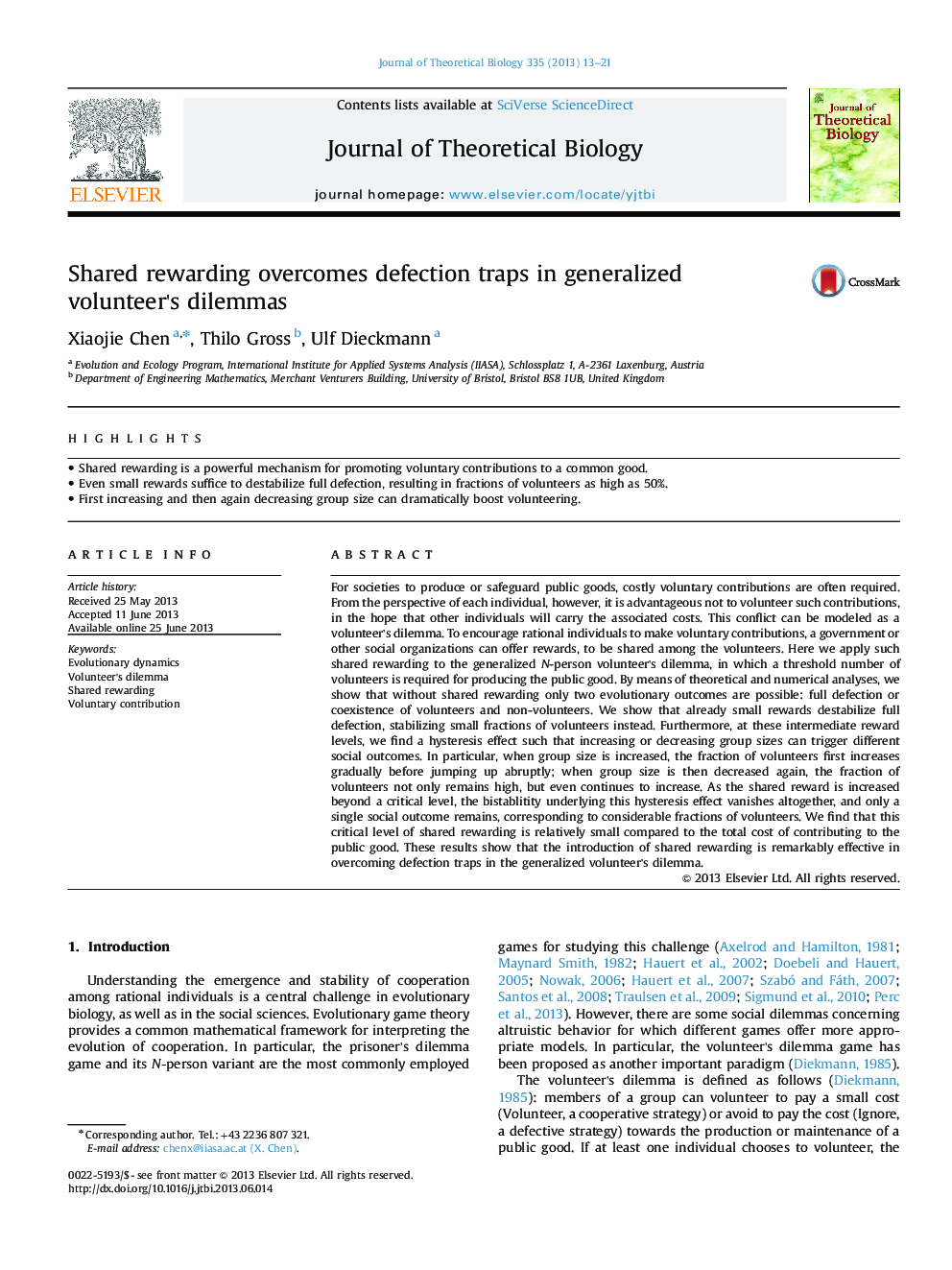| کد مقاله | کد نشریه | سال انتشار | مقاله انگلیسی | نسخه تمام متن |
|---|---|---|---|---|
| 6370669 | 1623875 | 2013 | 9 صفحه PDF | دانلود رایگان |
- Shared rewarding is a powerful mechanism for promoting voluntary contributions to a common good.
- Even small rewards suffice to destabilize full defection, resulting in fractions of volunteers as high as 50%.
- First increasing and then again decreasing group size can dramatically boost volunteering.
For societies to produce or safeguard public goods, costly voluntary contributions are often required. From the perspective of each individual, however, it is advantageous not to volunteer such contributions, in the hope that other individuals will carry the associated costs. This conflict can be modeled as a volunteer's dilemma. To encourage rational individuals to make voluntary contributions, a government or other social organizations can offer rewards, to be shared among the volunteers. Here we apply such shared rewarding to the generalized N-person volunteer's dilemma, in which a threshold number of volunteers is required for producing the public good. By means of theoretical and numerical analyses, we show that without shared rewarding only two evolutionary outcomes are possible: full defection or coexistence of volunteers and non-volunteers. We show that already small rewards destabilize full defection, stabilizing small fractions of volunteers instead. Furthermore, at these intermediate reward levels, we find a hysteresis effect such that increasing or decreasing group sizes can trigger different social outcomes. In particular, when group size is increased, the fraction of volunteers first increases gradually before jumping up abruptly; when group size is then decreased again, the fraction of volunteers not only remains high, but even continues to increase. As the shared reward is increased beyond a critical level, the bistablitity underlying this hysteresis effect vanishes altogether, and only a single social outcome remains, corresponding to considerable fractions of volunteers. We find that this critical level of shared rewarding is relatively small compared to the total cost of contributing to the public good. These results show that the introduction of shared rewarding is remarkably effective in overcoming defection traps in the generalized volunteer's dilemma.
Journal: Journal of Theoretical Biology - Volume 335, 21 October 2013, Pages 13-21
